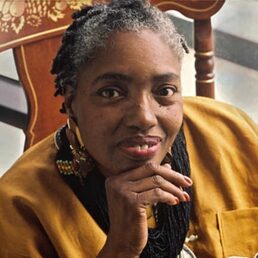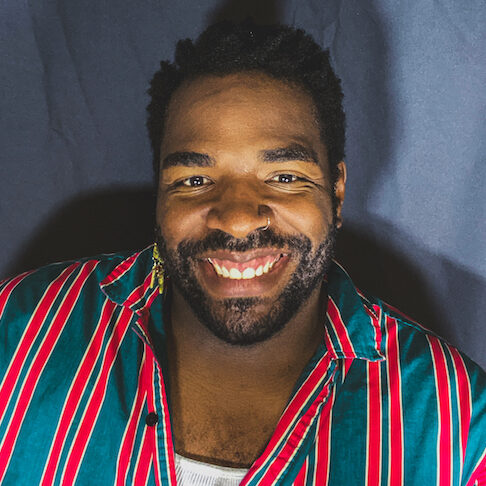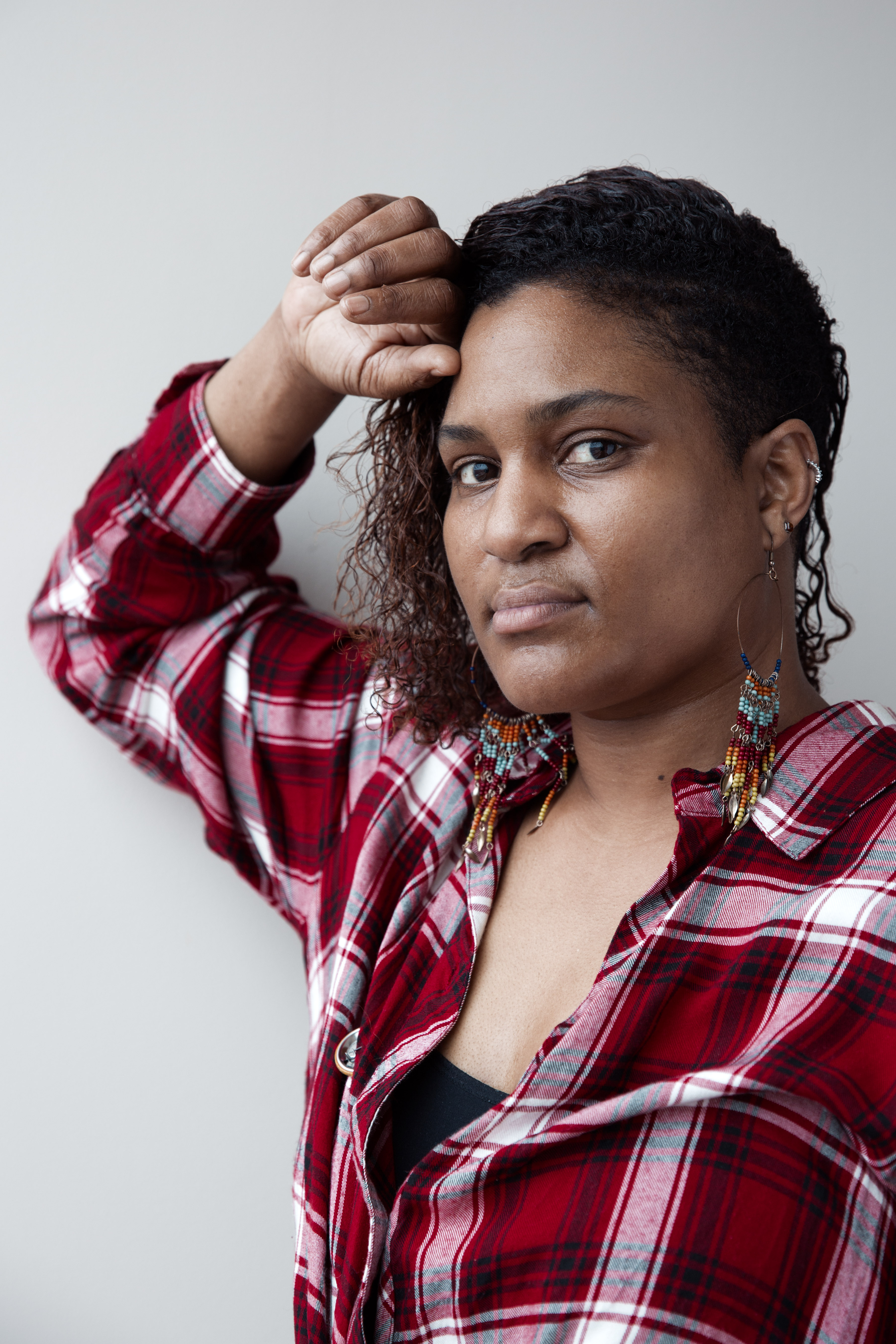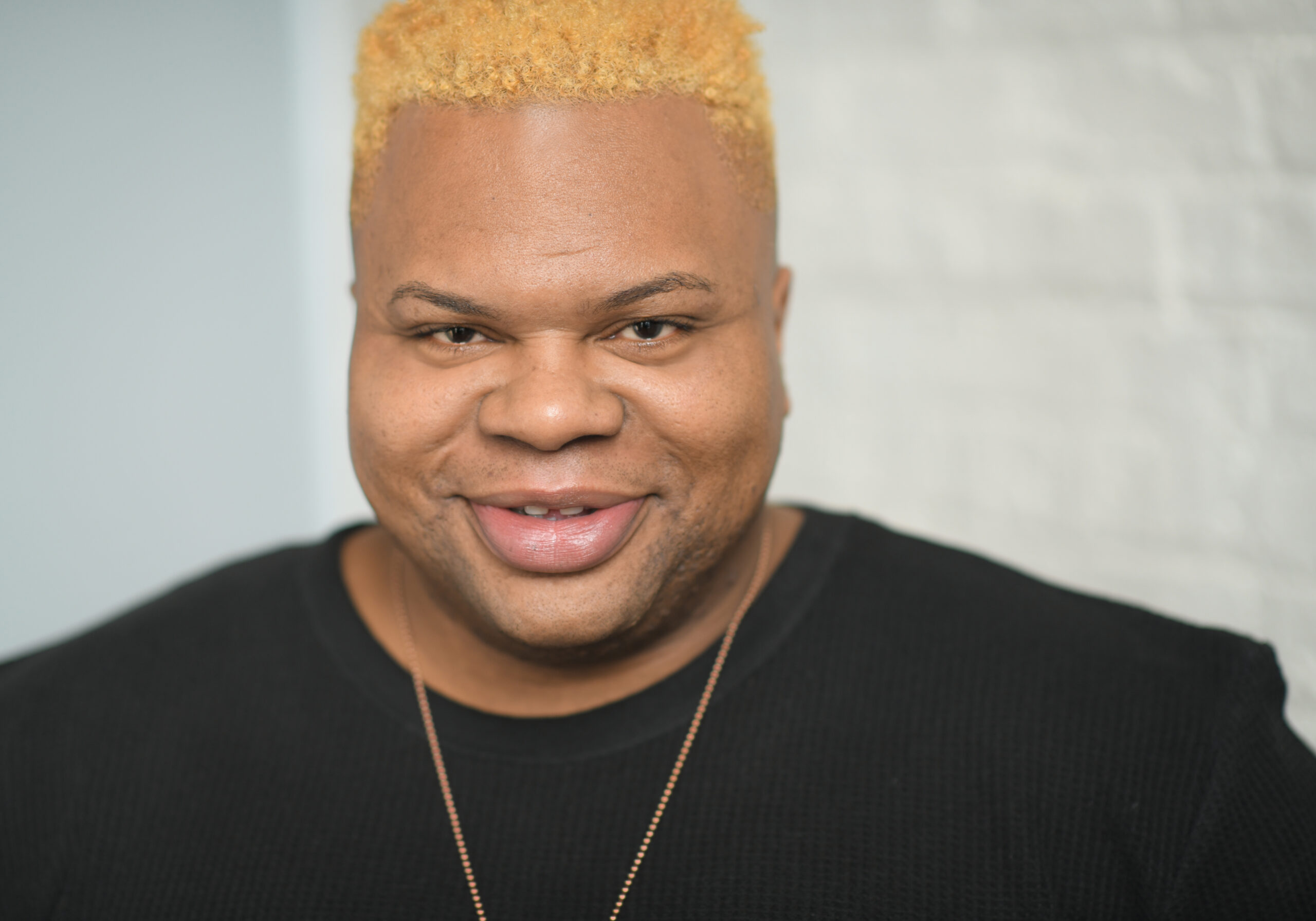Pegasus Theatre Chicago presents Gonna Be Somebody
GONNA BE SOMEBODY is a series of FREE community engagements in support of From the Mississippi Delta, by Dr. Endesha Ida Mae Holland; produced and curated by Nikki Patin. Find info about these events below – we hope to see you there!
Updated: June 7, 2023
Saturday, June 17 (after the 2:30pm performance)
Post-show discussion
Join members of the cast and creative team of From the Mississippi Delta for an in-depth discussion about the production and source material.
—
Saturday, May 20 (after 2:30pm performance)
BLACK WOMEN & RESISTANCE
Presented by Lifeline and Pegasus Theatres, Black Women and Resistance will be moderated by Natalie Moore (WBEZ, author of “The Southside”, will chat with Cassandra Fay Smith (Revolutionary, author), and Kristiana Rae Colón (Let Us Breathe Collective, playwright, screenwriter) about the civil rights/black liberation era and America’s most recent era of activism in the movement for black lives.
About the panel:
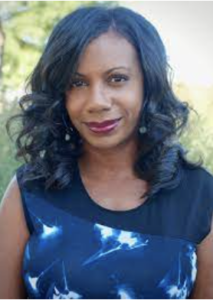
Natalie Y. Moore (Moderator) is an award-winning journalist based in Chicago. She is the author of The South Side: A Portrait of Chicago and American Segregation, winner of 2016 best nonfiction awards from the Chicago Review of Books and Buzzfeed. Moore is coauthor of The Almighty Black P Stone Nation: The Rise, Fall, and Resurgence of an American Gang and Deconstructing Tyrone: A New Look at Black Masculinity in the Hip-Hop Generation. She contributed to Southside, a 2018 collection of stories about the criminal justice system in Chicago. For the 100th anniversary of the 1919 Chicago riots, she cowrote a thirty-minute audio drama with Make-Believe Association. Her play The Billboard, about abortion and reproductive justice, was produced by 16th Street Theater and published by Haymarket Books. She is a reporter at WBEZ, Chicago’s NPR member station. Her enterprise reporting tackles race, housing, economic development, and food injustice. She writes a monthly column for the Chicago Sun-Times. Her work has been published in a range of publications, including Essence, Ebony, the New York Times, the Washington Post, and the Guardian. She is the 2017 recipient of the Chicago Library Foundation’s 21st Century Award. In 2010, she received the Studs Terkel Community Media Award for reporting on Chicago’s diverse neighborhoods. In 2009, Moore was a fellow at Columbia College’s Ellen Stone Belic Institute for the Study of Women and Gender in the Arts and Media, which allowed her to take a reporting trip to Libya.

Kristiana Rae Colón (author, playwright, activist) is co-director of #LetUsBreathe collective. The Let Us Breathe Collective is an alliance of artists and activists who tell the stories of protestors and people involved in #BlackLivesMatter. She earned a BA at the University of Chicago and an MFA at the School of the Art Institute of Chicago. She is the author of the chapbooks pieces of shedu (2008) and promised instruments (2013), which won the inaugural Drinking Gourd Poetry Prize. Her poems have been included in Dzanc Books’ Best of the Web 2010 and the anthologies Not a Muse: The Inner Lives of Women, a World Poetry Anthology (2009) and Chorus: A Literary (Re)Mixtape (2012). She appeared on the fifth season of HBO’s Def Poetry Jam. An alum of the Goodman Theater’s Playwrights Unit, Colón’s plays include florissant & canfield, an epic reimagining of the Ferguson protests, which was featured in the 2016 Hedgebrook Women Playwrights Festival; Octagon, which won the Arizona Theater Company’s 2014 National Latino Playwriting Award and Polarity Ensemble Theater’s Dionysos Festival of New Work, and had its 2015 world premiere at the Arcola Theater in London; but i cd only whisper, which premiered at The Flea in New York; and good friday which had its world premiere at Oracle Productions. In 2017, Colón was awarded 2017 Best Black Playwright by The Black Mall. Her play, Tilikum, had its world premiere in 2018 at the Sideshow Theatre Company in Chicago.
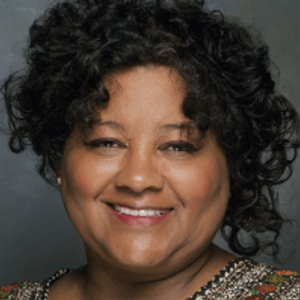
Cassandra Fay Smith was born in Detroit in 1950 when it was the wealthiest city in the world. The daughter of a Nixon Republican, she entered the University of Michigan in 1968 with the largest group of black students admitted at one time. Vietnam, the deaths of Malcolm X and Martin Luther King, two summers of riots, birth control pills, legal abortion, Black Power Movement, Motown music, Girl Scouts, Afros, mini-skirts, Bean pies, Free Huey. A year at Tuskegee Institute in rural Alabama when Shirley Chisholm was running for president, Angela Davis had been captured by the FBI and Mississippi boys taught her to catch and ride a horse.
She spent the 1970’s in a PhD program in history at Howard University; taught there and worked at the National Archives and Smithsonian Institution. In the 1980’s she earned an M.B.A. at the University of Southern California and generated profits for and bonuses from Coca-Cola and other firms. On January 1, 1990 she left to write full time and was published by TriQuarterly Magazine and National Public Radio. She has collected thousands of first hand accounts and photos of black people who lived during the American Civil War.
Keep an eye out for additional events leading throughout the run of Mississippi Delta!
From Picture This Post
From Poverty to Protest
May 2, 2023
By: Anthony Neri
HIGHLY RECOMMENDED
At Lifeline theater, we sat intimately close to an immersive creation of a Mississippian shotgun house. The rugged wood and clanking soles of the three actresses combined with stomping music and blues-style songs created the southern landscape in which Endesha Ida Mae Holland got her start. Holland, the original writer of the script, was a civil rights activist whose tragic and cantankerous upbringing in the Jim Crow South makes her a battle-worn veteran of that era.
We witness the constant shakiness of her life, the time the shotgun house ignites in flames, the abuse she suffers at the hands of a white man, and even the pangs of the at-home birth she gives to her child. Her midwife and mother, Ain’t Baby (Arielle Leverett), helps execute the birth, magically, it seems, reversing this infant from leaving feet-first to head-first by applying some alchemically charged spittle to her daughter’s navel. The moment adds to the texture of this region’s culture, in this writer’s opinion, which is already made lively by the accents, the music, and the set.
Lifeline Theatre Unfolds the Rough Adventure of a Modern Hero
There was an occasion or two in which this writer was confused as to who was playing who, given that each actress played multiple characters, as well as Holland at different stages of her life. Vocal strength and energy were never lacking in any of the three portrayals. A young version of Holland springing out of bed—a wood board with a sheet—charged with ebullience and innocent hopes sows true pathos in this woman’s arc. It is obtrusively sad when this elated Holland, marveling at the sheen of a white family’s floors, soon suffers her abuse when she is a mere cheery happy-go-lucky 11-year-old. In this writer’s opinion, the performance is stylistically coarse and unpolished at times, which makes it truer to Holland’s real history.
Luckily, the story shifts through a gradual trudge to a bright future. We witness the resurrection of Holland’s life when she inadvertently joins the Student Nonviolent Coordinating Committee. Holland never loses her childhood wonder, enthused and intimidated by the sleekness of northern cities, their neon lights and striped suits. The play closes with a tribute to other Black heroes of recent history just as it began with the same to the innocent boy Emmett Till. It is a weighty though rewarding journey from start to finish.
FROM THE MISSISSIPPI DELTA is a tragic, funny, and ultimately heroic story about a Civil Rights legend. Anyone interested in autobiography and American history should attend.
From Chicago Theatre Review
She Shall Overcome
May 2, 2023
By: Colin Douglas
RECOMMENDED
The late Ida Mae Holland took the first name Endesha later in life, as a tribute to her African roots. She earned a bachelors degree in African-American Studies at the University of Minnesota, followed later by a Masters and a PHD degree in American Studies. She wrote six plays, one of which was adapted from her memoir, From the Mississippi Delta. Dr. Holland won the Lorraine Hansberry Award, as a playwright, and taught at the State University of New York, in Buffalo, then became a professor of theatre at the University of Southern California. If someone had told the young Ida Mae Holland that these impressive accolades and achievements would eventually be a part of her future, she would’ve told them that they were crazy. But, to paraphrase the Pete Seeger folksong and the words of Martin Luther King, although Ida Mae didn’t know it at the time, She Shall Overcome.
Rising from a humble childhood in Greenwood, Mississippi, Ida Mae experienced so many unbelievably traumatic moments in her young life. As a youngster, Ida Mae was raped by a white employer for whom she was babysitting. She was expelled from school for her behavior. Then she turned to prostitution, in order to earn a living, and eventually became a unique kind of exotic dancer.
After a series of violent occurrences, the Student Nonviolent Coordinating Committee came to Greenwood. Ida Mae initially thought she could make a little cash there by offering her favors to the male employees. But instead, she became so impressed by seeing African-Americans working as professionals and running an inspiring business that helped people, like herself. Ida Mae then began volunteering in the office and in the field, becoming a part of the early Civil Rights Movement. But eventually there were repercussions: the KKK set fire to Ida Mae’s house, killing her mother, a woman known as Ain’t Baby. Ida Mae’s mama had become a highly respected midwife and helped deliver babies around the Mississippi Delta. She was even called “The Second Doctor Lady” for her miraculous medical expertise.
These are just a few of the many vignettes from the life of this surviver that are dramatized in this autobiographical play. Dr. Endesha Ida Mae Holland bravely overcame poverty and a violent beginning to become a proud, self-made African-American woman. All these incidents happened during the Jim Crow era, a time when the odds were definitely not in her favor. Fragments of her life experiences occur between the 1950’s through the 1980’s and depict the story of Ida Mae, as well as her loving mother, Ain’t Baby.
The production is guided with spirit and sensitivity by Lifeline’s Artistic Director, ILesa Duncan. Ida Mae’s story, narrated and enacted by three incredibly gifted actresses, is filled with both heartache and hilarity. LaKecia Harris, who was so wonderful in Manuel Cinema’s “A Christmas Carol,” is magnificent as Woman 1. Jenise Sheppard is wonderful as Woman 2, having impressed audiences and critics alike in “Ruined” at Invictus Theatre. And seen recently in Steppenwolf’s surreal production of “…Miz Martha Washington,” Arielle Leverett is astounding as Woman 3. These three magnificent performers play a variety of characters of a both genders and of all ages.
One of the funniest moments in this play involves a feisty elderly woman named Miss Rosebud, who stands guard over her water meter like a pit bull. She was told by a city worker that if no one stepped on it she wouldn’t have to pay as much for her water.
The production is staged on Angela Weber Miller’s impressive, multilevel, wood-hewn scenic design, skillfully lit by Levi Wilkins. The actors frequently pepper their performances with moving and beautifully sung spirituals, courtesy of music director Ricky Harris. And Tanji Harper contributes some wonderful, stylized movement and choreography to the entire production.
This memory play is stuffed to the gills with many incidents from the background of a woman who survived. She overcame so many obstacles, and this play reveals both the serious and the side-splitting aspects of her life. In the end, theatergoers will take with them the portrait of an African-American trailblazer whose accomplishments and rise to prominence are as impressive as they are seemingly impossible. But, after this production, no one will ever forget Miss Ida Mae Holland.
From Buzz Center Stage
‘From the Mississippi Delta’ at Lifeline Theatre
May 2, 2023
By: Sarz Maxwell
HIGHLY RECOMMENDED
As we drove away from Lifeline Theatre, I asked my companion what she thought of From the Mississippi Delta. “I have no words yet,” she said. “I’m still just reveling in delight.”
This play is indeed delightful. Even when eleven-year-old Phelia is raped; even when she and Aunt Baby are squashing cockroaches; even when her own town shuns her – even these scenes manage to delight without ever compromising the gravity of the story.
And the best part is it’s all true! Dr Endesha Ida Mae Holland (1944-2006) wrote the play From the Mississippi Delta based on her memoir/autobiography of the same name (which you can purchase in the lobby). As author and as playwright, Dr. Holland, professor emeritus of theatre at University of Southern California, chronicles her journey from dirt-farm poverty and the brutality of 1950’s Jim Crow, enduring rape and prostitution before finding herself in civil rights activism. It took twenty years, but Dr Holland completed her bachelors, masters, and doctoral degrees at the University of Minnesota. From the Mississippi Delta is a testament to Holland’s perseverance, and to the myriad sheroes who encouraged and sustained her.
The play, brilliantly directed by Lifeline Theatre’s Artistic Director ILesa Duncan, includes dozens of characters, all played by the cast of three actors: LaKecia Harris, Arielle Leverett, and Jenise Sheppard, billed in the program as Woman 1, Woman 2, and Woman 3. Harris and Sheppard alternate playing Phelia while Leverett primarily represents her mother, Aunt Baby. Aunt Baby’s artistry as a midwife leads a local (white, male – of course) doctor to call her ‘the second doctor’. The scene in which she rotates and delivers a breech baby left me stunned.
The play begins with the women relating hideous vignettes, beginning with Emmett Till, and each account ends with the words ‘This is the Mississippi Delta. This is where I was born and grew up’. After a handful of stories, they begin singing “Trouble in Mind”; that’s when I fell under their spell. Throughout the play they brilliantly perform at least a dozen iconic selections from blues and spirituals. Music Director Ricky Harris and Sound Director Deon Custard collaborate to meld the music perfectly with the action and with external and peripheral sound effects. Harris’ decision to forego accompaniment or instrumentation is inspired, as the three magnificent voices are enriched by a capella performance.
Fun Fact of the Day: the a capella genre originated with African Americans singing in African American barbershops: the original barbershop quartets.
Scenic Designer Angela Weber Miller’s amazing multi-level set has several doors and other options for egress, which choreographer Tanji Harper makes adroit use of to allow the three actors to instill a phenomenal amount of detail into each scene. Props Designer Wendy Ann caches props and bits of costumery (designed by Gregory Graham) all about the set, allowing the actors to change character by simply donning an apron or shucking a hat. The sparse furniture onstage is just as versatile: an ironing board converts to a birthing bed and later becomes grandstand seats for Phelia’s debut as a stripper. The transformations are skillfully abetted by Lighting Designer Levi J Wilkins. Stage Manager Roxie Kooi stitches it all together into an amazing package for Production Manager Adi Davis.
Everything lately seems to need an Intimacy consultant – even the American Ballet Theatre recently used one for a pas de deux – and Gregory Geffrard keeps the actors on the good side of the fine line separating stimulating from stodgy.
An African American deep-south accent is tough to pull off without sounding like Amos & Andy, so my hat’s off to Dialect Coach Shadana Patterson. Her job was made even tougher by the fact that white folks are notoriously challenged by African American dialects and accents. In fact, though I was encouraged to see the theatre more than 2/3-full, it was almost totally lacking Black faces, which I find both surprising and concerning.,
My melanin deficiency invalidates my opinion, but I’m going to give it anyway: I think African Americans, particularly Black women, would very much enjoy From the Mississippi Delta. It exposes the singular brutality lurking at the intersection of bigotry and misogyny. It is a testimonial to the strength and resilience of Black women, a hymn to the human spirit.
Look — if for no other reason, go for the music. See From the Mississippi Delta and be transported by these three magnificent voices.
From NewCity
A Story of Possibilities
May 4, 2023
By: Ted C. Fishman
RECOMMENDED
Lifeline’s funny, poignant, zippy production of “From the Mississippi Delta,” Endesha Ida Mae Holland’s 1990 play about the writer’s lifelong journey from the Jim Crow South, through the Civil Rights Movement of the 1960s and on to a Ph.D. and professorships soars on ILesa Duncan’s clever direction and the stunning, virtuosic performances by its three cast members. The trio takes on so many different roles that I lost count. At the final bows, I felt deeply grateful to these players, LaKecia Harris, Arielle Leverett and Jenise Sheppard, who shared the stage for nearly every moment of the hundred-minute show. They play women and men, young and old, rich and poor, white and Black, drunk and sober, wise and foolish. Sometimes they play the same roles as each other, including that of Phelia, the character Holland based on herself. The actors also sing spirituals, blues and civil rights anthems, gloriously. They make this show one that demands to be seen.
What makes their feat even greater is that as a play, “From the Mississippi Delta” is a wildly mixed hash, which in just slightly less capable hands would likely wither. Part of the problem may be that excellent, profoundly moving books, film and theater about the worlds of Black people in the South have become a feature of mainstream culture, while Holland’s work was conceived at a time when she felt a need to tell a broad history through her own life. She told a big history to a white audience that needed to learn the basics of a shameful century and one that, at the same time, offered an uplifting story of possibilities to a Black audience. I say this realizing that there’s a need for dishing the history out again and again, especially at a time when politics are increasingly racialized and when a large faction of white so-called conservatives seem hellbent on suppressing any whiff of history that looks at the history of race relations in our country critically.
Yet “From the Mississippi Delta” often moves so fast, and changes scenes and characters so quickly, that it frequently only signifies important issues of race, class, sexual abuse and commerce, and the activism of the Civil Rights Movement, where one might wish the playwright honed in on one or the other and went deep. The play works perfectly in the few longer vignettes that have a folksy, funny but ultimately serious “Lake Wobegon”-quality to them. One of the most engrossing reenacts how Phelia’s mother, named Ain’t Baby, a sharecropper who became a revered village midwife, saved mother and newborn from death with skillful care and some shaman-like incantations. The vignette lets us linger on Ain’t Baby’s greatness. When the play moves to another vignette portraying Ain’t Baby’s death—caused by burns inflicted by a torching of her shotgun cottage—and funeral, the cast sings a soulful, doleful rendition of “Will the Circle Be Unbroken.” The opening lyrics, “I was standing by the window, On a cold and cloudy day, When I saw the hearse come rolling, To carry my mother away…,” give a whole new context to the song. Such scenes make the play more than worth seeing, and the shallower bits, which are rescued by the killer cast, make it doubly–triply so.
From The Chicago Reader
Southern stories: ‘From the Mississippi Delta’ gets a warmhearted revival with Lifeline and Pegasus
May 11, 2023
By: Kerry Reid
READER RECOMMENDED
I first saw Dr. Endesha Ida Mae Holland’s autobiographical From the Mississippi Delta over 30 years ago in the old Goodman studio theater space. Though it’s been revived many times since, I hadn’t seen it again until the current Lifeline and Pegasus Theatre Chicago coproduction at Lifeline. It’s a testament to Holland’s gift for dialogue and anecdote that there were still moments that I remembered decades later. Ilesa Duncan’s production, featuring a nimble cast of three women playing multiple roles (LaKecia Harris, Arielle Leverett, Jenise Sheppard), does an admirable job of breathing new life into the show for which Holland (who died in 2006) remains best known.
The story, set in Greenwood, Mississippi, in the Jim Crow and civil rights years, follows Holland’s own mother, Ida Mae Holland (colloquially known as Aint Baby), as she raises her kids and delivers babies as a midwife for both Black and white women. As young Endesha (known as Phelia in the play) grows, she experiences a horrifying rape from the white man whose wife employs her as a babysitter. She also watches her mother work miracles with a difficult delivery, tries to work as an (underage) exotic dancer in a traveling show, and finally experiences a political awakening that takes her from organizing with the Student Nonviolent Coordinating Committee in her hometown (which leads to violent racist backlash) to moving to Minnesota for college.
The play’s structure means that we move from story to story without a great deal of connective tissue, and sometimes it feels like we could use a bit more interstitial material to ground us in the timeline. But the actors move so smoothly among all the different characters that it’s not too hard to just surrender to the tales. These stories also often move from comic to tragic in moments, but as Holland’s invocation of the murder of Emmett Till early on reminds us, for Black people in the Jim Crow south, danger was a constant shadowy presence.
Yet it’s also a joyful show, with Ricky Harris’ music direction and Tanji Harper’s choreography providing moments for the cast to cut loose and show us that they are not there as representatives of trauma porn, but rather as embodiments of real women who took chances, made mistakes, and refused to be silenced.









